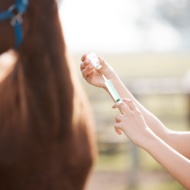The traps can be dangerous to cats and birds.
The Royal Society for the Prevention of Cruelty to Animals (RSPCA) has welcomed a new ban on glue traps, which has come in to force in England today.
The Glue Traps (Offences) Act 2022 bans members of the public from using glue traps, which capture mice and rats with non-drying adhesive.
RSPCA has long been campaigning for a complete ban on the devices, which it says can also trap and harm cats and birds. This can cause them pain, distress and suffering.
In trying to free themselves from the traps, animals can suffer severe injuries and die.
Under the new law, members of the public will be banned from using glue traps as a form of pest control. There has been similar legislation in place in Wales since October 2023, under the Agriculture (Wales) Act.
Although their use is banned by members of the public, ‘pest control’ contractors will still be licensed to use them under certain circumstances.
The animal welfare charity has said that it will be continuing to campaign for glue traps to also be banned for use by contractors.
Rebecca Machin, RSPCA scientific officer, said: “Though designed to catch rodents, we also see non-target animals - from birds to cats - getting stuck on the powerful glue and as they struggle to free themselves, they often suffer terrible injuries and die. But all animals should be treated with kindness and respect, and there are other, more humane methods available such as humane deterrence.
“RSPCA officers are repeatedly left shocked and horrified by the lethal damage wrought on wildlife, pets and other animals by these awful traps. In just the past month, we’ve had reports of a magpie, and some squirrels being caught - highlighting why we need this ban.”
She added: “The glue trap legislation is a really positive step in the right direction, though we will continue to campaign until these devices are completely stamped out with a blanket ban on use not only for the general public but for contractors too.
British Veterinary Association president Anna Judson said: “Glue traps are cruel products that do not kill trapped animals immediately, resulting in hours of agony and suffering.
"While the new law is a step in the right direction, ultimately, the British Veterinary Association would like to see a full ban of the sale and use of these products by both the public and professionals."
Image © Shutterstock



 Zoetis UK has apologised for a supply shortage of Equip Artervac, caused by a manufacturing issue.
Zoetis UK has apologised for a supply shortage of Equip Artervac, caused by a manufacturing issue.